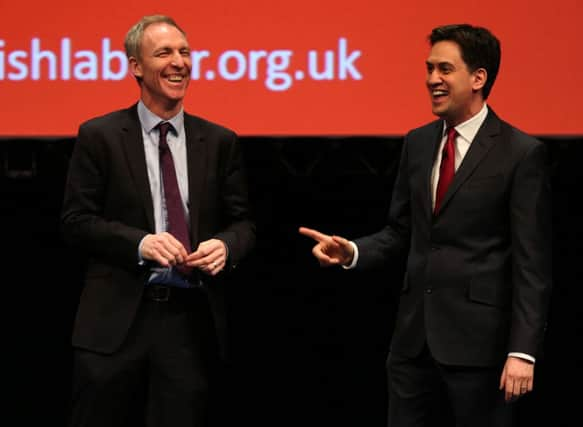Tom Peterkin: Labour to reuse indyref arguments


No-one in the independence movement has given up on their dream, but in the mainstream of the SNP at least there have been some small signs of a change of tack following the 18 September defeat.
Going into the general election, Nicola Sturgeon has taken care to keep a second referendum off the immediate agenda. As far as the constitution is concerned, Sturgeon wants to use May’s poll to argue for full fiscal autonomy – a settlement that would see all taxation and spending come to Holyrood.
Advertisement
Hide AdAdvertisement
Hide AdLabour may be languishing badly in the polls, but it sees the SNP’s new constitutional position as a weak point that can help its recovery.
The battlelines of the constitutional debate may have been redrawn slightly, but similar economic arguments to the ones deployed during the independence referendum can be used by Jim Murphy and Co to attack the Nationalists.
At the heart of Labour’s and the other pro-Union parties’ attacks is the idea that full fiscal autonomy would see Scotland deprived of the extra cash it receives as a result of the Barnett Formula – the funding mechanism which determines the size of our block grant from the UK Treasury.
Those pro-Union arguments were out in force yesterday when Sturgeon unveiled the latest Gers (Government Expenditure and Revenue Scotland) figures for 2013-14. For yet another year, the Gers figures demonstrated that, under the current constitutional arrangement, more public cash is spent per head of population in Scotland than the UK average.
Furthermore, as Labour was at pains to point out, the extra cash that would come to Scotland under full fiscal autonomy from North Sea oil taxation comes nowhere near plugging the gap.
There is also the consideration that yesterday’s Gers figures do not cover the recent period, which has seen a dramatic fall in the price of oil.
As Labour and others attempt to hammer home, that multi-billion-pound gap will only widen when subsequent Gers figures reflect oil falling to below $50 a barrel.
As for the SNP, they will continue to maintain that extra powers could be used to grow the Scottish economy. Again, it is a familiar argument whether it comes from a fresh-faced SNP leader arguing for full fiscal autonomy or a “thrawn bugger” arguing for independence.